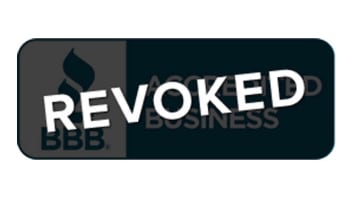
BBB St. Louis: Don’t let overdraft fees take you by surprise

(Getty Images)
Recent polling found that millions of consumers are surprised by yearly overdraft fees on their checking accounts. Better Business Bureau® (BBB®) St. Louis advises consumers to familiarize themselves with their bank or credit union’s policies so a preventable expense doesn’t take them aback.
In a recent Consumer Protection Financial Bureau (CFPB) report, over a quarter of respondents said that someone in their household was charged an overdraft or insufficient fund (NSF) fee within the past year. Most households did not expect the fee.
Each bank or credit union has its own overdraft policy – when a consumer withdraws more cash than is currently in their checking account. Many financial institutions will provide a line of credit to cover the charge when this happens, but they may charge the customer an additional fee.
The current average overdraft fee is $26. If consumers aren’t carefully tracking their finances, a $5 purchase could cost five times what they expected.
The standard for overdraft fees may soon change. In January, the CPFB proposed a rule to limit the fees financial institutions with more than $10B in assets can charge.
You can avoid surprise fees by ensuring you’re clear on your financial provider’s overdraft policies. Research carefully and ask about these policies before choosing a new bank or credit union.
BBB’s tips for handling overdraft fees:
- Know your bank or credit union’s policy. Ask your financial institution if they have a plan to cover overdrafts, how it works, and if there are fees for the service. See if the bank or credit offers a grace period for overdrafts. Some will waive the fee if the customer returns their account to positive within a certain period, like 48 hours.
- Consider opting out. Your bank or credit union may offer the option to opt out of overdraft coverage – so if you overdraw, you won’t be charged a fee, but the payment will not go through. You can also ask if it’s possible to link your savings account to your checking account so your money will cover the overdraft rather than the bank’s.
- Research with BBB. Many banks and credit unions have eliminated or reduced overdraft fees, so if you need overdrafts, consider using one of those financial institutions. At BBB.org, you can search for trusted financial institutions, read reviews, and see if other customers have filed complaints.
- Track your budget carefully. If your bank or credit union is one of the roughly 91% that charge overdraft fees, you’ll want to keep an eye on your balance to avoid running out of funds in your checking account. Ask your financial institution if you can receive alerts when your balance falls below a certain amount. Check out BBB’s tips for creating and sticking to a budget.
- Know your autopay schedule. Many people use autopay to schedule their bills or other payments. Keep track of the scheduled dates for automatic payments to ensure they don’t overdraft your account.
Visit BBB’s Financial Wellness HQ for more tips on tracking your budget and finding trusted financial services.
Related News
Still Need Assistance?
Contact Your Local BBB
Your local Better Business Bureau can assist you with finding businesses you can trust. Start With Trust®.
Additional Resources
Central Ohio BBB Business Podcast


